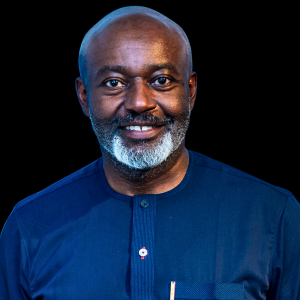Dear Excellencies, friends, esteemed Guests, ladies and gentlemen – a good afternoon to you all.
As we commemorate the International Day of Reflection on the 1994 Genocide Against the Tutsi in Rwanda, it is a privilege to join you here and to extend a warm welcome to you all.
On behalf of the United Nations family in South Africa, I thank the High Commission of Rwanda, for co-organizing this important dialogue in appreciation of the renewed commitment to preventing genocide globally.
Kwibuka31 serves as a reminder of the million lives that were lost in one of the most heinous chapters of modern history – a moment when the world failed to prevent or stop the Genocide against the Tutsi in Rwanda.
Today, it is our solemn obligation to honour the memory of the victims and the strength and dignity of the survivors.
We recognize the resilient journey of the Rwandan people towards healing, restoration, and reconciliation.
Indeed, Rwanda today stands as a powerful testament of the human spirit’s ability to heal even the deepest wounds and emerge from the darkest depths to rebuild a stronger society.
Ladies and gentlemen,
The theme of this year’s commemoration, "Preventing Genocide: A Shared Duty," is both timely and imperative.
It reminds us that silence, indifference, and inaction have no place in our pursuit to build and deliver a more sustainable, peaceful, and inclusive world.
Above all, it underscores our shared moral responsibility, and it calls on each of us to remain vigilant – in our communities, our institutions, and our discourse.
As we reflect on the profound resonance of this day, we are confronted by a world marked by uncertainty, denialism, misinformation, and rising inequality — eroding solidarity, cohesion, trust and fracturing our shared values.
In this context, we are reminded that, “it is more important than ever to reaffirm the principles enshrined in the UN Charter, to respect international law, to support and implement decisions of international courts, and to reinforce human rights around the world.”
The United Nations family remains steadfast in its commitment to the prevention of genocide, to upholding justice, and protecting human dignity — everywhere, for everyone.
The UN General Assembly Resolution that established this day serves as a potent reminder of our collective resolve to combat hatred, intolerance, and violence in all its forms.
We must not only remember – we must learn.
And we must act boldly and urgently to “stem the tide of hate speech, stop disunity, uphold human rights and ensure accountability” for present and future generations.
To those who seek to divide rather than unite, we must respond with a message that is clear, unwavering, and resolute: Never again.
As I conclude, allow me to reiterate the words of the UN Secretary-General urging us all to “deliver on commitments made in the Global Digital Compact to tackle online falsehoods and hate, to comply with their obligations under international humanitarian and human rights law, and to become parties to the Convention on the Prevention and Punishment of the Crime of Genocide without delay.”
Let this solemn day of remembrance, and this dialogue, serve not only as a moment of reflection, but also as a motivator and catalyst for awareness, action, and solidarity.
Thank you again for being here, and I look forward to meaningful and honest conversations today.





